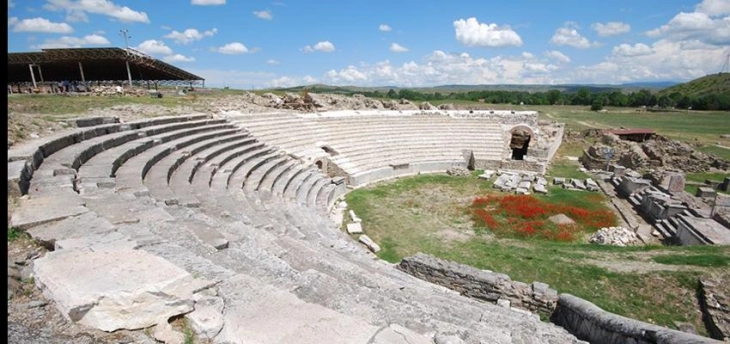State Audit Office: Cultural heritage protection in the country is not efficient enough
- Measures and activities undertaken by the authorities are insufficient and not efficient enough to realize the necessary protection and revitalization of immovable cultural heritage, show res

Skopje, 4 January 2023 (MIA) – Measures and activities undertaken by the authorities are insufficient and not efficient enough to realize the necessary protection and revitalization of immovable cultural heritage, show results from a revision on “Efficiency of policies and measures for the protection of immovable cultural heritage” conducted by the State Audit Office in 2022, in accordance with the 2022 Annual Work Program.
The auditors revealed an absence of regular care, maintenance, security and direct protection measures by the proprietor and the authorized protection institution that contributes to the damage, loss, destruction and increased costs to maintain the active functioning of the cultural heritage, as well as no clear and objective criteria to fund immovable cultural heritage and a distribution of funds to competent institutions, which limits the opportunity for timely and appropriate protection of immovable goods.
“Cultural heritage is the foundation of a people’s cultural and national identity. Our country has a rich cultural heritage from past generations that has immeasurable meaning that needs to be protected, preserved and maintained as a permanent investment for future generations. The range and evidence secured by conducting the audit’s techniques and methodology gave us the basis to make the following conclusion: We are reasonably convinced that the measures and activities for the protection, management and revitalization of immovable cultural heritage conducted by competent institutions are insufficient and not effective enough to realize the necessary protection, creating a real threat for the permanent preservation of immovable cultural heritage for future generations,” according to the State Audit Office.
The revision found certain inconsistencies with legal regulation, as well as inapplicable legal solutions that make direct protection of cultural heritage measures more difficult, and the absence of strategic and planned documents affects the definition of priority goals and basic principles, measures and activities for protection and usage of cultural goods, as well as determining activities for the permanent preservation of cultural values and their integrated protection.
The State Audit Office says the competent institutions have been given recommendations based on the results of the audit meant to secure amendments and additions, i.e. bringing a new Law on Protection of Cultural Heritage and alignment with related legal regulations, improving national institutions’ staff by adding immovable cultural heritage protection experts, establishing a functional information system for cultural heritage and a Cultural Heritage National Registry, to approve funds for more investments in the preventative protection of cultural heritage and finding additional sources to fund cultural heritage protection, as well as equipping the staff with immovable cultural heritage protection inspectors and increasing the efficiency of the inspection staff by conducting a controlled inspection following the imposed measures.
The goal of the audit was to answer the question “Does the existing legal framework, established logging methods, funding activities and measures taken by the competent institutions to identify, protect and monitor do enough to secure efficient protection of immovable cultural heritage?” aimed towards increasing the efficiency of measures and activities of competent institutions to protect immovable cultural heritage as a fundamental value of the country that’s protected in all sorts of circumstances. dk/nn/







